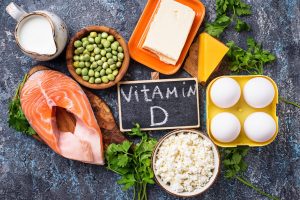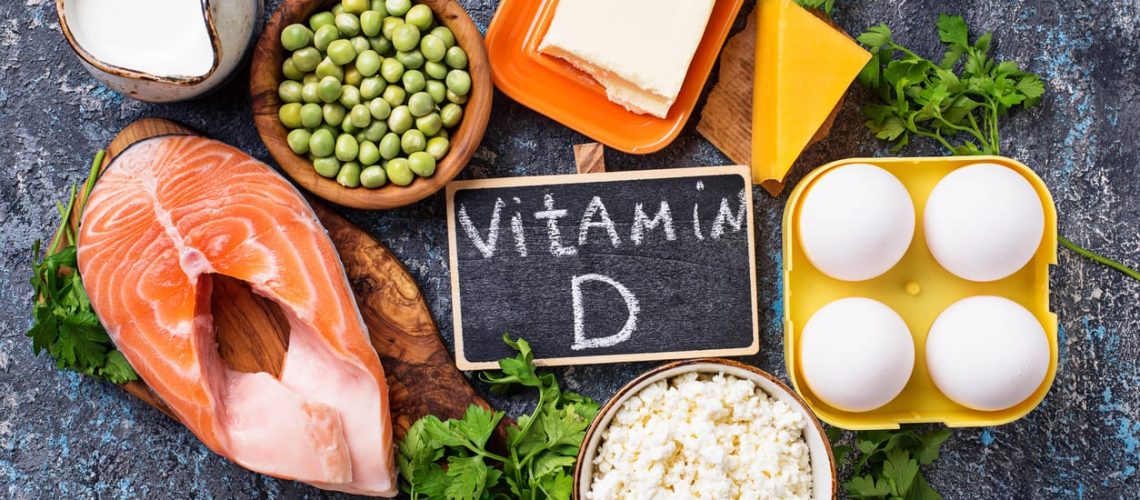Natural Sources of Vitamin D – Vitamin D is the sole nutrient that our body can produce when exposes to sunlight. This vitamin is sharply essential for the human body for multiple reasons. This guide stresses natural sources of vitamin D that we can consider to avoid the scarcity of this fat-soluble vitamin.

One of the prime functions of vitamin D is that it regulates the intake of calcium and phosphate in the body. It is critically required to keep teeth, bones, and muscles healthy. Vitamin D deficiency may lead to severe health issues, including rickets in children and osteomalacia in adults.
What is Vitamin D?
Vitamin D is also popularly known as Sunshine Vitamin. The human body starts generating vitamin D when it comes to direct contact with the sunlight. Further, the fat-soluble vitamin incorporates some other compounds like D-1, D-2, and D-3. Apart from the sunlight, people can fulfill the need by consuming certain foods and supplements as well.
There’s a list of vital functions that vitamin D performs in our body. It comes to manage calcium absorption, bones and teeth growth, fortifying the immunity, blood circulation, digestion and nervous systems etc. As per the statement by the Office of Dietary Supplements (ODS), vitamin D assists in keeping an individual’s bones muscles and nerve system healthy.
Some Key Benefits of Vitamin D
- Improves Bone Health – As vitamin D regulates and maintains calcium and phosphorus levels, these ingredients are pivotal for bone health.
- Fights Diseases – Further, vitamin D helps avoid multiple ailments, including the risk of sclerosis, reducing the heart disease chances, and avoiding flu.
- Keeps Infants Healthy – Vitamin D deficiency may lead to high blood pressure in kids. Likewise, the vitamin may also improve the anti-inflammatory effects of glucocorticoids.
- Reduces Depression – As per some researches, vitamin D stands important when it comes to regulating mood and terminating depression. It is noted that people with depression register improvements after taking vitamin D supplements.
- Healthy Pregnancy – Pregnant women are more likely to develop preeclampsia if they are vitamin D deficient.
Natural Sources of Vitamin D
What are various sources that stay essential to meet the vitamin D requirements? Although sunlight is a significant source of vitamin D, around 50% of the global population may not get enough sunlight.
In that scenario, people may head to certain foods and supplements to overcome the vitamin D deficiency. This chapter will illustrate some of the best foods and other natural sources that are high in vitamin D. Let’s hop right in.
Sunlight
The sun is one of the biggest sources when it comes to receiving the vitamin D nutrient. That’s why the vitamin is known as the ‘sunshine vitamin.’ How does it work?
The human skin has a special type of cholesterol that works as a precursor to vitamin D. As soon as it gets exposed to UV-B rays coming from the sun, it turns into vitamin D. The sunlight-driven vitamin D circulates double-time as compared to vitamin D from foods and supplements.
Salmon
Furthermore, salmon is another great source of the fat-soluble vitamin. One serving of 100g of the fatty fish contains 526 IU of vitamin D, according to the United States Department of Agriculture. It comes in two types – Wild or Farmed.
The wild salmon includes 988 IU of vitamin D in every 100g serving. On the other hand, farmed salmon features around 250 IU of vitamin D in the same serving.
Oily Fish
Oily fish and oils from fish also make a large hub of vitamin D. They host large vitamin D quantities to be efficient source of vitamin D. Oil fish may contain the following nutrients:
- Herring – It hosts 306 IU of vitamin D that is equal to 51% of a person’s recommended daily allowance.
- Cod Liver Oil – With 450 IU per teaspoon, Cod Liver Oil provides around 75% of an individual’s RDA.
- Swordfish – It contains 706 IU per filet to be around 117 percent of a person’s recommended daily allowance.
Mushrooms
In case a person is vegetarian and doesn’t like to eat fish, they can switch to certain mushrooms. Some mushrooms are rich in vitamin D:
- Raw Maitake Mushrooms – 562 IU in every 50g serving; 94 percent of a person’s RDA.
- Dried Shiitake Mushrooms – 77 IU in every 50g serving; 12 percent of a person’s RDA.
Egg Yolks
Seafood isn’t only the lone source of vitamin D. People can add eggs to the diet to overcome the vitamin D needs. The whiter part of the egg contains protein, while vitamins, fats, and minerals are available in the yolk. You can get 37 IU of vitamin D in a single typical egg yolk.
The Bottom Thought
No doubt, sunlight is one of the best natural sources of vitamin D. But most of us don’t get a sufficient amount of sunlight to gain the optimum dose of vitamin D. Therefore, you must prefer some natural foods to meet your daily vitamin D needs.
The blog demonstrates some of the widely used and easily available foods that are a good source of vitamin D. Make sure you eat plenty of these kinds of stuff to get this crucial nutrient.

